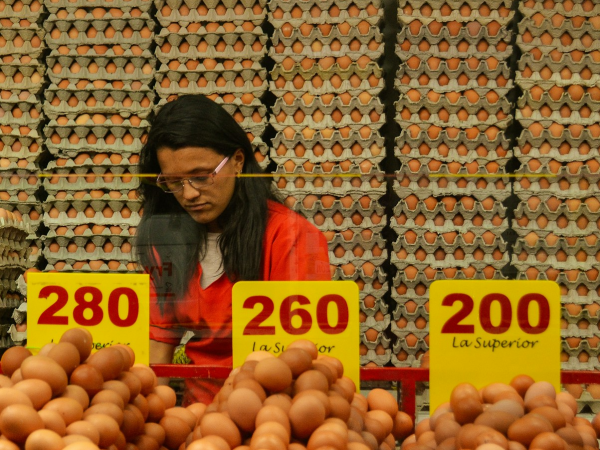Low-carbon and digital economy transitions are set to change South Africa’s political economy and social structure. Effective regulatory and social protection systems are needed to cushion the working class against the social costs of technological and economic upgrading.
Global debates about transitioning towards low-carbon and digital economy models permeate societies across the globe along with debates over the climate emergency. Several political actors are grappling with what these two major structural shifts mean for society’s future development path. This discussion raises uncertainty and potential conflicts based on historic experiences of economic structural adjustments in the global south, especially in countries like South Africa with persistent intergenerational inequality. Race, class, gender, and geographic location still determine residents’ wellbeing prospects nearly thirty years after establishing democratic rule. The current government has committed, through policy frameworks and international agreements, to move towards introducing digital and economic technologies to improve the country’s development.
Yet, there is no consensus about how to manage the socio-economic and political costs (or externalities) from previous macro-economic structural reforms. The early signs from pilot projects or sector-based case studies where low-carbon and digital technologies have been inserted point to worrying trends. Two examples evidence these concerns: social conflict over Uber’s operations in South Africa, and the grievances of communities who reside in areas where coal-fired power stations have been shut down. In both cases, policy measures intended for managing digital and low-carbon economy externalities have not provided adequate social protection interventions or alternatives for those communities’ livelihoods.
These technologies are not inherently exploitative or misaligned with South Africa’s development needs. Instead, communities’ resistance to change rather illuminates how underlying socio-economic distributional concerns are essential in creating inclusive and just transitions. Hence, civil society and trade unions advance a case for expanding social protection first, in structural shifts towards a low-carbon and digital driven economy. This call needs to be contextualised within debates about socio-economic redistribution in South Africa, a society affected by high unemployment, structural inequalities, and minimal social cohesion.
I support the trade and civil society proposition for several reasons. First, hegemonic global policy frameworks on the transitions often focus on macro-economic indicators such as Gross Domestic Product, foreign investment, global competitiveness, carbon emissions, and trade volumes. Labour market and social protection measures are perceived as peripheral issues to the economic and environmental transitions, even though these factors shape human development significantly. This raises deeper questions about how dominant policymakers measure successful development in a global economy meant to be driven by low-carbon and digital technologies. Over-emphasising macro-economic indicators while downplaying labour market and social protection trends are well-documented shortcomings of those dominant paradigms (e.g. World Bank, 2018). South African experiences in the early digital and low-carbon transition stages rather encourage the extension of social protection and active labour market interventions in economic restructuring process. This will cushion workers and the broader working class from transition-related socio-economic costs. Concrete demands include introducing a Universal Basic Income Grant (UBIG), employment guarantees, compensating care activity and strengthening universal access to public goods and services.
A second reason for expanding social protection relates to rethinking work and livelihood options in society. The market-based capitalist economy continues to deepen employment and social reproduction crises in South Africa. High levels of socio-economic exclusion, poverty, and uneven access to public goods highlight this point. There is a need for socio-economic redistributive policies which can allow residents to pursue varied employment and livelihood strategies. Such need is particularly salient in a region where non-formal and intermittent employment represent a significant part of communities’ livelihoods. Expanding social protection, through social transfers or other protection measures such as supporting community-owned food systems, provides opportunities for citizens to explore both wage and non-wage economic activities in the transitions.
A comprehensive social protection system must equally support care work, often overlooked when designing policy frameworks for new technologies. The emphasis is often placed on industrial wage policies and employment, and the need for reskilling within this limited conception of ‘work’. But black women are essentially driving South Africa’s economy through their unpaid care work and other activities contributing to community social reproduction. This includes child rearing, caring for the sickly, informal trade, emotional support for family members, running local food systems and communal childcare. A just social protection framework, within the context of the transitions, must support and compensate care providers, especially black women, for their socially reproductive labour that racialised capitalism in South Africa has exploited for nearly four centuries. Social protection expansion in the transitions can create conducive conditions for addressing the absence of protection for care providers in the home and to support women-led local economy initiatives, simultaneously bringing in gendered dimensions to transition policy debates.
Thirdly, augmenting social protection is essential for social justice. Household income trends in the country illustrate longstanding disparities anchored in unjust race, class, and gender power relations embedded in the country’s history. South Africa’s racialised capitalist economic structure was built on the back of intersectional super-exploitation. Consequently, social protection in the transitions should be framed within the broader need to acknowledge and address historic injustices. This approach implies challenging perceptions of social transfers as purely market-based fiscal interventions. Conservative and organised business stakeholder groups in the country always advance the limited fiscal base argument when pushing back against expanding social protection. According to these organisations, using social protection to address racial, gendered and class inequalities impedes economic development by placing additional strains on South Africa’s fiscus. But this view reduces social justice to market-values and downplays empirical evidence from international financial institutions, highlighting that long-term inequality constrains economic development in multiple ways (IMF, 2014).
Civil society and trade unions in South Africa have made an evidence-based case for increasing public spending to support social protection in the country. These proposals include introducing a wealth tax, prescribed assets, increasing corporate tax, and regulating financial transactions and markets more stringently. Overall, the justice principle in South Africa’s just transition policy framework must rapidly introduce new patterns of socio-economic redistribution.








